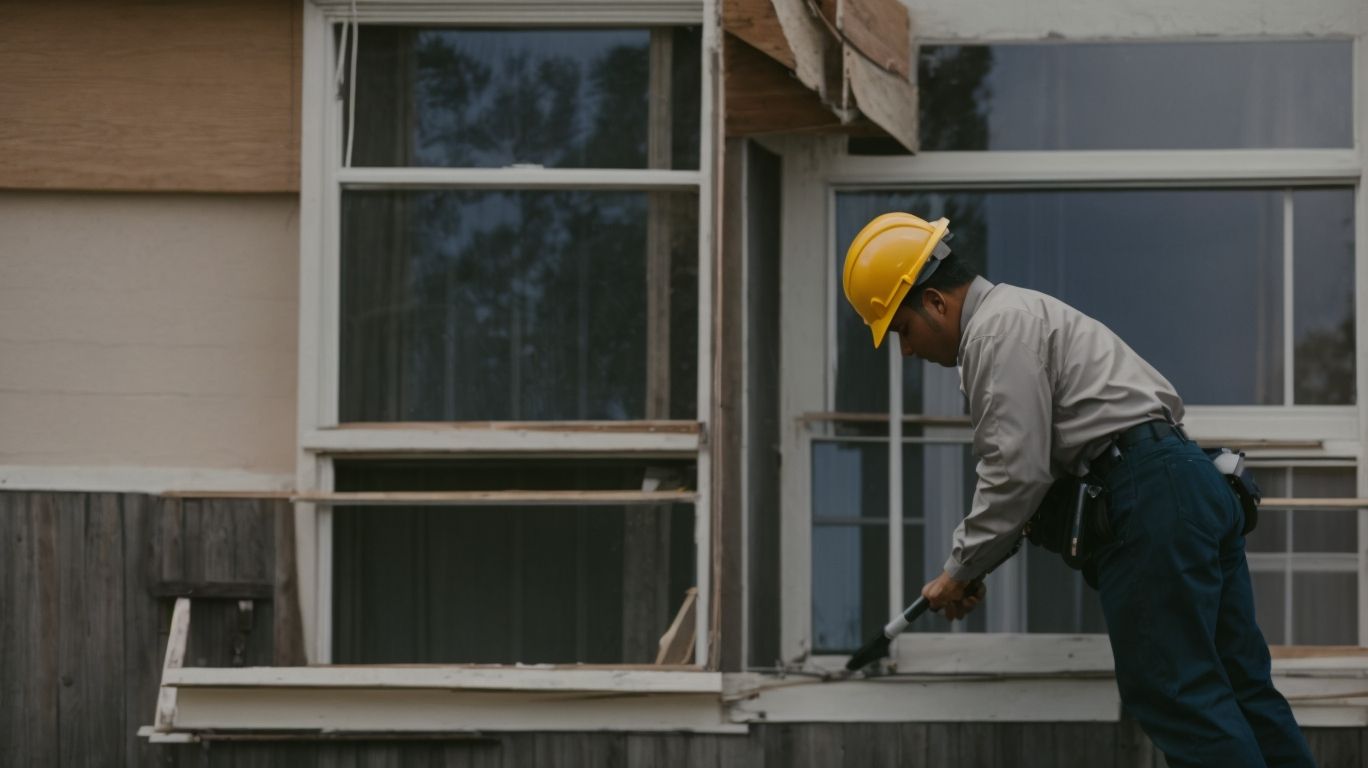
How to Choose the Right Engineer for Your Second Story Addition in the Bay Area
Are you considering adding a second story to your home in the Bay Area? Choosing the right engineer for the job is crucial to ensure a successful and smooth project.
This article will guide you through the process of finding the perfect match for your project, from understanding the reasons and benefits of a second story addition to researching and shortlisting potential engineers.
Learn about the factors to consider when selecting an engineer, evaluating their credentials, and finalizing your decision to hire the best fit for your needs.
Understanding Your Second Story Addition Needs
Understanding Your Second Story Addition Needs is crucial, especially for homeowners in the Bay Area looking to expand their living space.
One of the primary reasons why homeowners opt for second-story additions in the Bay Area is to maximize their property’s square footage without sacrificing outdoor space, which can be a precious commodity in this region.
The stunning views offered in many Bay Area neighborhoods make second-story additions an attractive prospect as they allow residents to take full advantage of the picturesque surroundings.
There are challenges to consider, such as obtaining permits, adhering to local building regulations, and ensuring the structural integrity of the existing property when adding a second story.
What Are the Reasons for Adding a Second Story?
There are various reasons why homeowners consider adding a second story to their existing property, ranging from the need for additional space to fulfilling design preferences and enhancing property value.
- One common motivation behind opting for a second-story addition is the growing need for more living space within the home. As families expand or individuals acquire more possessions, the need for extra room becomes essential.
- Incorporating design aesthetics plays a vital role in the decision-making process. Homeowners often seek to enhance the overall look and feel of their property, aligning it with their personal style preferences and creating a cohesive visual appeal throughout the entire structure.
What Are the Benefits of a Second Story Addition?
Second story additions offer homeowners the opportunity to expand their living space without sacrificing yard area, enhance property value, and tailor the design to their preferences while ensuring structural integrity and building safety.
By adding a second story, homeowners can maximize the usage of their existing property, making it more functional and spacious. These additions often lead to a significant increase in the overall value of the home, providing a return on investment. With the ability to customize the design to suit individual needs and style preferences, second-story additions offer a level of flexibility that is unmatched. Experienced professionals in construction can help navigate the complexities of such projects, ensuring that the work is completed efficiently and up to code for the safety and security of the residents.
Factors to Consider When Choosing an Engineer
Selecting the right engineer for your second-story addition project involves evaluating their qualifications, experience, and understanding of local building codes and regulations.
- Project management skills play a vital role in ensuring the smooth execution of the construction project. An engineer with strong project management capabilities can effectively oversee timelines, budgets, and resources, leading to successful project completion.
- Adherence to construction standards is non-negotiable when choosing an engineer for your project. A competent engineer will prioritize following established construction best practices, ensuring quality workmanship and compliance with industry regulations. By considering these crucial factors, you can select an engineer who will bring expertise and reliability to your second-story addition project.
What Type of Engineer Do You Need?
Determining the type of engineer required for your second-story addition involves assessing whether you need an architectural designer with specific engineering qualifications to meet your design specifications.
- Architectural designers play a key role in conceptualizing the aesthetic aspect of your project, focusing on creating a visually appealing and functional design.
- Once the design is finalized, structural engineers step in to ensure the addition is structurally sound and adheres to building codes. They analyze load-bearing capacities and design proper support systems.
- Construction engineers oversee the implementation phase, coordinating with contractors and ensuring the use of appropriate building materials for durability and safety. Understanding the distinct responsibilities of these engineering specialists is vital for a successful second-story addition.
What Experience Should the Engineer Have?
The engineer you select for your second-story addition should possess a diverse project portfolio, in-depth industry knowledge, and technical expertise to ensure the successful execution of your construction project.
Such experience is crucial as it not only demonstrates the engineer’s ability to handle various project complexities but also provides valuable insights into potential challenges and solutions. With a strong foundation in construction management and technical competencies, the engineer can navigate regulatory requirements, structural considerations, and design intricacies effectively. This expertise plays a vital role in ensuring that your second-story addition is not just structurally sound but also aesthetically pleasing and functional. By leveraging their past projects and industry insights, the engineer can optimize the design, materials, and construction methods for your specific needs.
What Certifications and Licenses Should the Engineer Have?
When choosing an engineer for your second-story addition, ensure they hold the necessary certifications, licenses, and insurance, and that their engineering firm is well-versed in obtaining building permits and adhering to local regulations.
Verifying an engineer’s credentials, licenses, and insurance coverage is crucial in ensuring the structural integrity and safety of your construction project. Working with a reputable engineering firm not only guarantees that the necessary building permits are acquired in a timely manner but also ensures compliance with local building codes and regulations. This not only minimizes potential delays and legal issues but also provides assurance that the project is being handled by knowledgeable professionals who prioritize quality and adherence to industry standards.
What Is the Engineer’s Availability and Timeline?
Before finalizing your choice of engineer, it’s essential to discuss their availability, project scheduling capabilities, and commitment to adhering to the construction timeline for seamless project coordination.
This alignment is crucial as it ensures timely completion of different project stages, prevents delays, and minimizes cost escalations. Effective project scheduling involves creating a detailed timeline that factors in permits, material lead times, manpower availability, and potential weather disruptions.
Engineers play a key role in overseeing these aspects, making adjustments as needed to keep the project on track. Through clear communication and proactive problem-solving, engineers can navigate challenges that may arise during construction, leading to successful project outcomes.
What Is the Engineer’s Communication Style?
Effective communication is key when selecting an engineer for your second-story addition, as their communication style, project management skills, and focus on client satisfaction can significantly impact the project’s success.
Without clear and consistent communication between the engineer and the client, misunderstandings can arise, leading to project delays and budget overruns. A proficient engineer should not only possess technical expertise but also be able to convey complex ideas in a concise and understandable manner to clients. By actively listening to the client’s needs and concerns, the engineer can tailor their project management approach to align with the client’s expectations, ultimately enhancing satisfaction and ensuring a successful project outcome.
Researching and Shortlisting Potential Engineers
Researching and shortlisting potential engineers for your second-story addition involves gathering recommendations, evaluating their project planning capabilities, and assessing their expertise in site preparation.
- One effective method of seeking recommendations is to reach out to colleagues or friends who have recently undertaken a similar construction project. Their firsthand experiences can provide valuable insights into the engineer’s communication style, problem-solving approach, and overall satisfaction with the project outcome.
- Reviewing the engineer’s past project plans can give you an indication of their attention to detail, creativity in finding engineering solutions, and ability to stay within budget constraints. When assessing their experience in site preparation, consider their knowledge of local building codes, environmental regulations, and safety protocols to ensure compliance and successful execution of the project.
Where Can You Find Potential Engineers?
To find potential engineers for your second-story addition, consider seeking references from trusted sources, exploring their construction expertise, and reviewing their previous building projects.
- References play a crucial role in identifying competent engineers, as they provide insights into the candidate’s reputation and work ethic from those who have directly worked with them.
- Assessing the construction expertise of potential engineers involves evaluating their specific skills, knowledge of building codes, and understanding of construction standards.
- Examining past building projects allows you to assess the engineer’s compatibility with your project requirements, ensuring that their previous work aligns with the scope and complexity of your second-story addition.
How to Evaluate the Engineers’ Credentials and Portfolio?
When assessing engineers for your second-story addition, focus on evaluating their credentials, reviewing their project oversight capabilities, and ensuring they have experience in construction supervision, especially for complex building upgrades.
- Check if the engineers have a solid track record of successful project coordination and implementation. Look for evidence of their ability to provide innovative engineering solutions that align with your vision for the project.
- Inquire about their expertise in managing building upgrades efficiently and cost-effectively. A reliable engineer should exhibit strong communication skills to ensure smooth collaboration with contractors and other stakeholders throughout the construction process.
- Prioritize candidates who demonstrate a thorough understanding of building codes and regulations, showcasing their expertise in navigating regulatory requirements.
What Questions Should You Ask During the Initial Consultation?
During the initial consultation with potential engineers, inquire about their approach to project management, expertise in budget management, and strategies for project oversight to ensure a successful second-story addition.
Consider asking the engineers about their track record in delivering projects within budget constraints. Inquire how they handle unexpected costs or scope changes during a project. Discuss their preferred method for tracking project progress and ensuring timely completion. Seek insights into how they communicate project updates and handle any potential conflicts that may arise during construction.
Understanding their collaboration practices with other professionals like architects and contractors can also provide valuable insights into their overall project coordination abilities.
Finalizing Your Decision and Hiring the Engineer
Finalizing your decision and hiring the right engineer for your second-story addition involves careful consideration of factors such as contractor selection, project completion timelines, and compliance with building regulations.
It’s crucial to research potential contractors thoroughly, checking their credentials, experience level, and reviews from previous clients.
Remember that the right engineer can make all the difference in ensuring timely completion of your project while adhering to important building codes.
By prioritizing building safety and client satisfaction, you set the stage for a successful home addition that meets both your expectations and regulatory standards.
Consult with multiple engineers to compare their approaches and communication styles, seeking someone who aligns with your vision and can deliver exceptional results.
How to Compare and Weigh Your Options?
When comparing and weighing your options for engineers, consider factors such as their knowledge of local regulations, proficiency in project planning, and expertise in designing robust building structures.
Local building codes play a crucial role in ensuring that construction projects adhere to the specific regulations and standards set by the area. Engineers who are well-versed in these codes demonstrate their commitment to following the necessary guidelines for safety and compliance.
Technical expertise is essential when evaluating engineers, as it showcases their understanding of complex design principles and structural integrity. Competence in creating sturdy building structures involves a blend of experience, innovation, and a meticulous attention to detail to produce efficient and sustainable architectural solutions.
What Should Be Included in the Engineer’s Contract?
The engineer’s contract for your second-story addition should encompass details regarding project execution, building expertise, and mechanisms for ensuring client satisfaction throughout the construction process.
This crucial document should clearly delineate the various phases of project oversight, outlining specific timelines and milestones to ensure smooth progress. It should also highlight the engineer’s commitment to leveraging their building inspection skills to maintain quality standards and adherence to construction techniques.
Provisions for regular client updates and feedback mechanisms must be articulated to uphold transparency and address any concerns promptly. By including these essential components, the contract sets a solid foundation for a successful and satisfactory project delivery.
How to Maintain Good Communication with Your Engineer?
Establishing and maintaining effective communication with your engineer is crucial for ensuring seamless project coordination, attention to construction details, and alignment on project planning objectives throughout the construction process.
One key strategy for fostering communication with the engineer is to schedule regular check-ins to discuss progress, address any issues promptly, and make any necessary adjustments to stay on track. Providing clear and detailed project updates along with actively listening to their feedback can help build a strong working relationship. By emphasizing the importance of client communication, project management, and construction expertise in these interactions, both parties can ensure that everyone is on the same page regarding the project goals and expectations.




No Comments